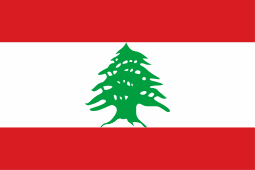Overview:
The Reform, Recovery, and Reconstruction Framework (3RF) in Lebanon involves the government, civil society, and the international community to address reform challenges, incentivize investments, and rebuild trust in governance. Initially launched to respond to the Beirut explosion, it now focuses on inclusive policy discussions, reforms, and long-term reconstruction efforts for sustainable economic recovery. The government prioritizes and implements reforms, civil society provides expertise, and the international community supports with knowledge and potential funding aligned with priorities.
The 3RF's reform priorities are laid out across 16 thematic areas (click here to check all areas - https://www.lebanon3rf.org/) with working groups comprised of Civil Society Organizations, International Institutions, and Governmental Institutions that collectively set a roadmap to implement reform of critical importance for recovery across all sectors.
Despite setbacks triggered by the reoccurring crises, all stakeholders involved in the process are still determined to proceed with the outlined reform and that was evident in the expansion of the scope of work in the aftermath of the reconstruction phase.
Rehub aims to shed light on the continued efforts invested
by all stakeholders – with emphasis on civil society action – to catalyze the
Framework’s reform agenda and integrate more non-3RF actors into the action
needed for sustainable reform.
Strategic Importance:
The strategic importance of the Reform, Recovery, and Reconstruction Framework (3RF) in Lebanon lies in its comprehensive, collaborative approach to addressing the country's pressing challenges and fostering sustainable recovery. Initially launched in response to the Beirut explosion, the 3RF has evolved into a critical platform for long-term recovery, integrating efforts from the Lebanese government, civil society, and the international community. This inclusive framework ensures that reforms are informed by diverse perspectives and expertise, aligning immediate recovery needs with broader goals for economic stability and infrastructure rebuilding.
Furthermore, the 3RF’s structured priorities and the
establishment of the Lebanon Financing Facility are pivotal in mobilizing and
directing financial resources effectively. By pooling funds from various
international donors and focusing on critical reform areas, the 3RF supports
both urgent socio-economic interventions and long-term recovery efforts. This
strategic approach not only facilitates the implementation of necessary reforms
but also enhances transparency and coordination, ultimately paving the way for
sustainable development and restoring public trust in governance.
Key Objectives:
The key objectives of the Reform, Recovery, and Reconstruction Framework (3RF) are:
- People-Centered
Recovery: To restore sustainable livelihoods for the affected
population, enhance social justice for vulnerable groups including women
and the poor, and ensure participatory decision-making in recovery
efforts. This includes addressing urgent needs through policy measures,
investments, and capacity-building.
- Reform
Implementation: To support the reconstruction process by
implementing critical reforms that improve governance and accountability,
thereby restoring public trust in state institutions. This objective
emphasizes the necessity of concurrent reform efforts to ensure that
reconstruction is effective and sustainable.
- Reconstruction
of Critical Assets and Services: To rebuild essential
infrastructure and services that provide equal access to quality basic
services, supporting sustainable economic recovery. This involves both the
reconstruction of physical assets and the implementation of necessary
reforms to facilitate long-term recovery.
Strategic Pillars:
- Improving
Governance and Accountability: To enhance transparency and
effectiveness in governance and ensure that recovery efforts are
accountable and well-managed.
- Jobs
and Opportunities: To create employment opportunities and support
economic development, helping to stabilize and grow the economy.
- Social
Protection, Inclusion, and Culture: To strengthen social safety
nets, promote inclusion, and support cultural initiatives, ensuring that
recovery efforts benefit all segments of society.
- Improving
Services and Infrastructure: To invest in and upgrade essential
services and infrastructure, making them more resilient and accessible to
the population.
Stakeholders and Implementation:
The Reform, Recovery, and Reconstruction Framework (3RF)
involves a diverse group of stakeholders, each playing a critical role in its
implementation and oversight. At the core, the Government of Lebanon is
responsible for leading the reform and reconstruction efforts, enacting
necessary changes to improve governance, accountability, and overall recovery.
This role includes passing and implementing the required reforms to restore
public trust and support sustainable recovery.
Civil society organizations (CSOs) are integral to the
3RF's operation, providing essential expertise and ensuring diverse
perspectives are represented. These currently include:
- Adyan
Foundation, which manages diversity and promotes inclusive citizenship and
education.
- ALEF
– Act for Human Rights, which documents and advocates for human rights in
Lebanon.
- AMAN,
focusing on policies related to diversity, accessibility, and
inclusion.
- arcenciel,
which works on sustainable development and inclusion for disabled
individuals.
- Lebanese
League for Women in Business (LLWB), which advocates for women’s
empowerment and professional development.
- Lebanon
Humanitarian & Development NGOs Forum (LHDF), facilitating
coordination among local NGOs for effective humanitarian and development
responses.
- AUB
Nature Conservation Center (AUB-NCC), focusing on environmental
sustainability through academic and community-based initiatives.
- Restart
Center, which works on human rights legislation and anti-torture
efforts.
- SAIL
for Change, applying scholarly expertise to community-focused projects in
health, education, and environmental sustainability.
International organizations and development partners also
play a vital role. The World Bank provides financial support through the Lebanon
Financing Facility (LFF), a multi-donor trust fund that mobilizes and
coordinates international financial support for Lebanon's recovery. The LFF is
designed to support critical reforms and investments that are essential for the
country's socio-economic recovery, focusing on areas such as infrastructure,
social protection, and economic stability. It ensures that financial resources
are directed towards priority sectors identified by the 3RF, with an emphasis
on transparency and accountability.
The United Nations offers technical expertise and support
aligned with 3RF priorities, while the European Union contributes funding and
supports various 3RF initiatives.
Additionally, the 3RF Secretariat and Technical Team
facilitate the coordination of these efforts, including the selection of CSOs
and development partners, organizing meetings, and tracking progress on action
points. The Consultative Group Members, including rotating representatives from
the listed CSOs, contribute to discussions, set priorities, and monitor the
advancement of the 3RF’s objectives.
Working Groups within the 3RF play a critical role in the
framework’s operation. Each Working Group is tasked with focusing on specific
thematic areas, such as governance, social protection, public finance
management, and infrastructure. These groups bring together stakeholders from
the government, civil society, and international organizations to develop and
implement action plans that address the most pressing challenges in their
respective areas. The Working Groups are responsible for ensuring that the reforms
are aligned with the 3RF’s overall goals and are implemented effectively. They
serve as the primary mechanism for driving the reform agenda, facilitating
collaboration, and ensuring that progress is regularly monitored and
reported.
Independent Oversight Board (IOB):
The Independent Oversight Board (IOB) is a crucial component
of the 3RF, providing independent oversight to ensure effective implementation
and accountability. The Board comprises six civil society representatives, who
were selected through a transparent process. These representatives bring
diverse expertise to ensure comprehensive oversight and adherence to the 3RF
principles.
The IOB's functions include delivering non-partisan
assessments of 3RF processes, conducting independent reviews, monitoring the
implementation of Consultative Group decisions, and providing policy
recommendations. It also advises on mid-term reviews and final evaluations,
offers technical recommendations on communications and citizen engagement, and
promotes the use of grievance mechanisms. The Board communicates its findings
and recommendations to the public and ensures transparency in its operations.
Membership in the IOB is on a pro bono basis, with terms rotating annually to
maintain continuity and introduce fresh perspectives.
Conclusion:
The Reform, Recovery, and Reconstruction Framework (3RF) represents a pivotal initiative in Lebanon's path to recovery, addressing the multifaceted challenges posed by the Port of Beirut explosion and the broader socio-economic crises. By engaging a diverse coalition of stakeholders—including the Lebanese government, civil society organizations, and international partners—the 3RF seeks to achieve a people-centered recovery, implement crucial reforms, and reconstruct critical infrastructure. The framework emphasizes an inclusive and transparent approach, ensuring that reforms and recovery efforts are responsive to the needs of all segments of the population, particularly the most vulnerable.
Central to the 3RF’s success is its robust oversight
mechanism, which includes the Independent Oversight Board. This body plays a
critical role in maintaining accountability, transparency, and citizen
engagement throughout the implementation process. By providing independent
reviews, monitoring progress, and making policy recommendations, the Board
helps to ensure that the framework’s goals are met effectively and equitably.
As the 3RF evolves, its emphasis on continuous stakeholder involvement and adaptive
strategies will be crucial in driving sustainable recovery and rebuilding trust
in Lebanon's governance and public institutions.
Annex:
After the 3RF was launched and the key priorities were
identified, these priorities were categorized and transformed into a tracking
sheet to ensure continuous monitoring and progress reporting. This process was
essential in maintaining a clear and organized approach to Lebanon's recovery,
focusing on transparency and accountability. The tracking sheet, now a crucial
part of the 3RF’s operational framework, allows stakeholders to monitor the
implementation of reforms and their impacts across various sectors.
Before the main progress reports were released, an emergency
response narrative was provided in 2022, detailing immediate actions taken to
address urgent needs following the launch of the 3RF. This report highlighted
the initial efforts to stabilize the situation and set the groundwork for
longer-term recovery strategies.
3RF Priorities Reform:
The 3RF’s priorities were formed in response to the urgent
and critical needs identified during the initial stages of Lebanon's recovery
process. These priorities are continually reassessed and updated to ensure they
remain relevant and aligned with the evolving challenges and opportunities in
the recovery efforts. For more information on how these priorities are defined
and managed, please refer to the following document:
- 3RF
Priorities Reform: 3RF Monitoring Framework
Progress Reports:
The progress reports are critical documents that provide
insights into the ongoing recovery efforts. These reports are published
regularly to track the progress of reforms and the implementation of recovery
strategies. They include detailed assessments of the progress made, challenges
faced, and the adjustments needed to keep the recovery on track.

 EN
EN
 العربية
العربية

